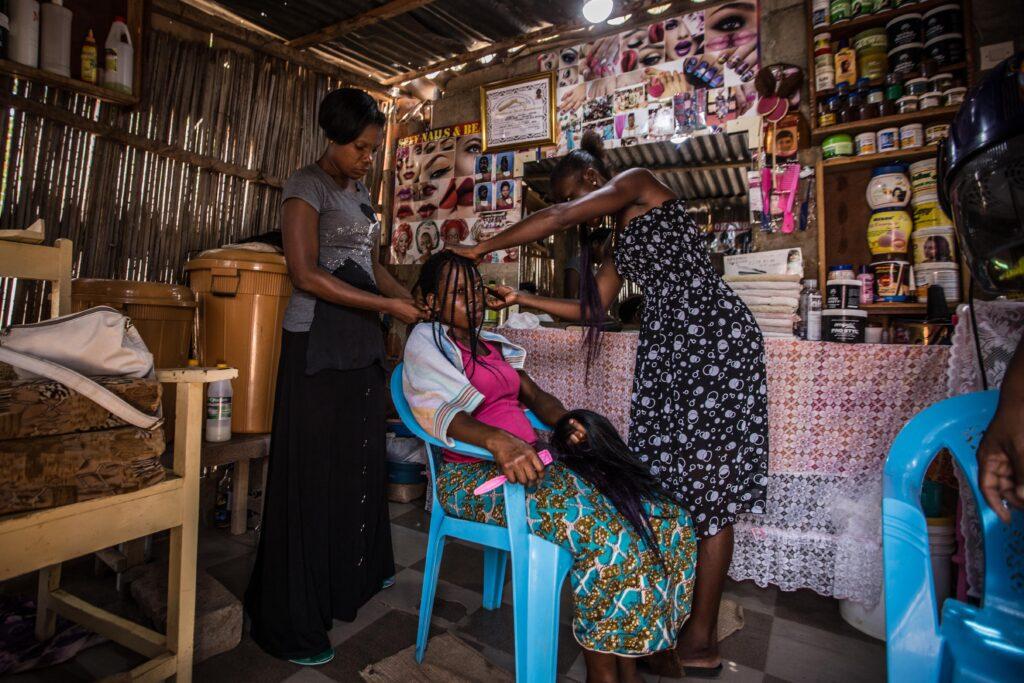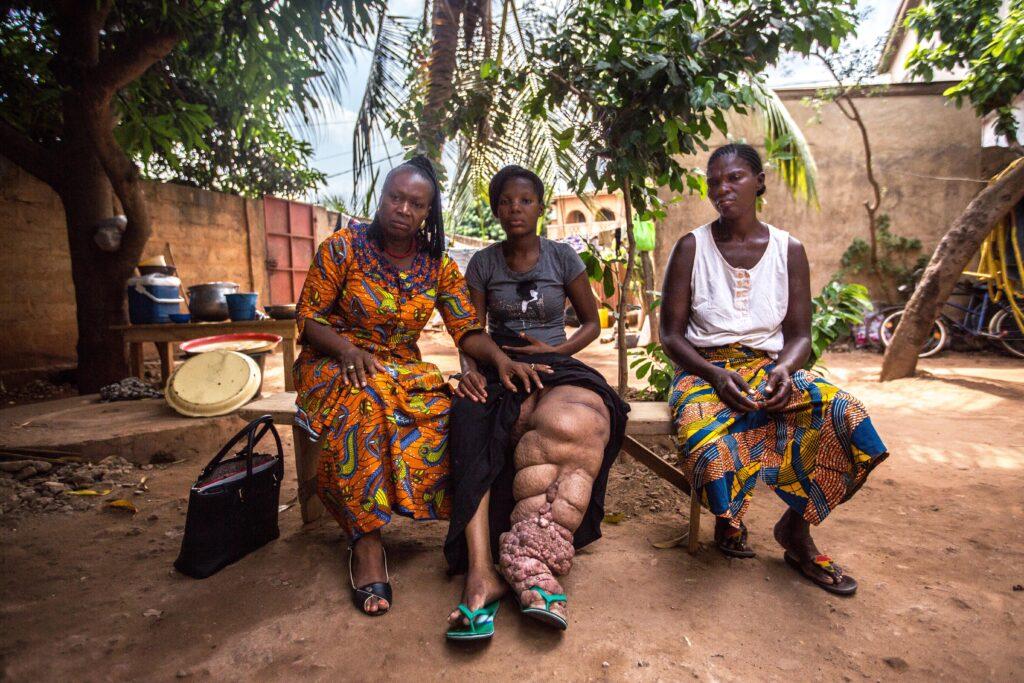These diseases that affect 1.5 billion people affect one group the most

Among the poor communities affected by Neglected Tropical Diseases, one group suffers disproportionately: women and girls.

Adzo (far left) at work, Lomé, Togo
At first glance, Adzo Kouwonou looks just like any woman her age. You might not notice anything different about the 25-year-old hairdresser who lives in Lomé, the capital of Togo, unless you see her walking or wearing anything other than a long, loose skirt.
Kouwonou suffers from lymphatic filariasis, commonly referred to as elephantiasis. This mosquito borne disease poses a serious threat to approximately 406 million people living in Africa. When chronic, it results in lymphoedema (tissue swelling), elephantiasis (skin/tissue thickening) of limbs and hydrocele (scrotal swelling).
Such deformities not only result in stigmatisation and high medical costs. They also impede patients’ ability to earn income. Kouwonou, who was born mute, got lymphatic filariasis as a child and has suffered from its debilitating effects since.

Adzo Kouwonou at home in Lomé, Togo.
Lymphatic filariasis is one of the top five most common neglected tropical diseases (NTDs). While countries across the globe mobilise to combat the spread of Covid-19, it should be remembered that this group of conditions already affects more than 1.5 billion people worldwide and kills 170,000 a year.
NTDs primarily affect the world’s most impoverished communities. But within this, one group is even more likely to suffer disproportionately: women and girls.
Women bear the biggest burden from neglected tropical diseases, not only due to biological and physical factors, but also socio-cultural norms. For example, women and girls perform two-thirds of water collection, giving them greater exposure to water-borne diseases such as schistosomiasis, commonly known as bilharzia. Women are also more likely to be primary care-givers, while girls are more likely to drop out of school to take care of sick family members, increasing their exposure to such diseases.

Mansoura at school, N’dounga Tarey near Niamey, Niger
Mansoura is similar to many 11-year-old girls in the world. She loves school, has a close-knit family and a group of friends with whom she loves to play and dance. She has big dreams for her future. Her life is often interrupted, however, by the bouts of intolerable stomach pain caused by schistosomiasis. This in turn causes severe emotional and financial distress to the family that loves her. Women who contract schistosomiasis are up to three times more likely to contract HIV/AIDS.
Another NTD that women are particularly susceptible to is trachoma, the leading cause of blindness worldwide. The disease scars the inside of the eyelid, turning it inwards and makes eyelashes rub against the eyeball resulting in constant pain and light intolerance. Women account for up to 80% of disability-adjusted life years linked to blindness caused by trachoma.
While there have been positive changes in the fight against NTDs in the past decade, much more is required if the continent is to completely eliminate them. Thanks to the work of organisations – such as The Expanded Special Project for Elimination of Neglected Tropical Diseases (ESPEN), a World Health Organisation project founded in 2016; Speak Up Africa, an African policy and advocacy action tank that focuses on NTDs; and the No to NTDs movement – some progress is being made.
There have been successes recorded. In 2017, Togo eliminated lymphatic filariasis as a public health problem. In 2018, Ghana did the same with trachoma.

Mansoura getting her medication, N’dounga Tarey near Niamey, Niger
But the road ahead is still long. Whilst Africa represents nearly 40% of the global NTD burden with 600 million people requiring treatment, only 0.6% of global health funding is dedicated to the elimination of these diseases. This is despite the fact that the cost-effectiveness of NTD programmes is arguably one of the best health investments in global public health today with small investments yielding large returns.
These programmes will need to increasingly focus on equitably improving access to reach the most vulnerable populations such as women and girls, who are disproportionately affected by NTDs. They owe it to the Adzos and Mansouras, all across the continent.






